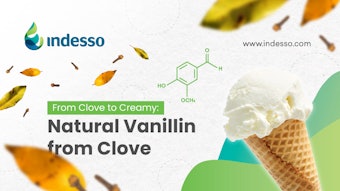One's sensitivity to the bitterness of quinine is in part determined by genetic variation, according to a new study from Monell. Lead study author, behavioral geneticist Danielle Reed, notes, “This study teaches us that naturally occurring medicinal compounds taste differently to people based on variations in and near a bitter receptor gene. Depending on differences in human DNA, some people find quinine to be more bitter than others do. We wonder whether people who are less sensitive to the taste of some bitter medicines might get less pharmacological benefit from them.” The full abstract appears below:
"The perceived taste intensities of quinine HCl, caffeine, sucrose octaacetate (SOA), and propylthiouracil (PROP) solutions were examined in 1,457 twins and their siblings. Previous heritability modeling of these bitter stimuli indicated a common genetic factor for quinine, caffeine, and SOA (22-28%), as well as separate specific genetic factors for PROP (72%) and quinine (15%). To identify the genes involved, we performed a genome-wide association study with the same sample as the modeling analysis, genotyped for ~610,000 single nucleotide polymorphisms (SNPs). For caffeine and SOA, no SNP association reached a genome-wide statistical criterion. For PROP, the peak association was within TAS2R38 (rs10246939, I296V, P=1.1x10-101), which accounted for 45.9% of the trait variance. For quinine, the peak association was centered in a region that contains bitter receptor as well as salivary protein genes and explained 5.8% of the trait variance (TAS2R19, rs10772420, R299C, P=1.8x10-15). We confirmed this association in a replication sample of twins of similar ancestry [p=0.00001]. The specific genetic factor for the perceived intensity of PROP was identified as the gene previously implicated in this trait (TAS2R38). For quinine, one or more bitter receptor or salivary proline rich protein genes on chromosome 12 have alleles which affect its perception but tight linkage among very similar genes precludes the identification of a single causal genetic variant."










